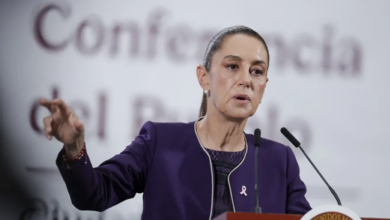Cape Town: What is living on the verge of running out of water like?
Latin American Post spoke with a Latino living in the South African city about what it is like to live with the risk of running out of the precious liquid
After the local authorities announced that “day zero” (the time when the city will run out of water) by mid-May, the inhabitants of the second most populous city in South Africa began to experience changes in their daily routines.
Latin American Post spoke with Luciano Damián Carbajo, an Argentine resident in Cape Town. Carbajo explained that “at the moment the situation with the water has taken us to the entire population of Cape Town to have an extremely careful use of the resource”.
Normally, Latinos have been privileged in accessing water, which is why Luciano has experienced this saving in an uncommon way. “As an Argentine, from Rio de la Plata, I have grown up considering water as an unlimited resource, and although one has always been rational with the use of the resource for reasons of ecological awareness, it is really the first time that I am in a situation where we have to take care of and value every drop, not only as an individual, but collectively among all of us who live in this wonderful city”, explained the Argentine.
Although the order of a significant reduction in the use of water has not yet been given, it has been recommended that they use 50 liters of water per person each day. To be able to make an image of the savings, normally, a person spends around 171 liters per day in a country like Spain.
According to data from the organization Ecologists in Action, people spend about 12 liters per minute while brushing their teeth. The same organization also advises to bathe in the shower (50 to 100 liters) than in a bathtub or tub (150 to 250 liters).
Precisely, Luciano explains that now he has to take a shower for 2 minutes maximum, he must close the tap or tap while soaping or shampooing and using little pressure. The people of Cape Town are also filling the dishwasher and the washing machine every time they use them.
Luciano knows that the arrival of the “so feared day zero” will be a challenge for the whole city, since “it will involve endless difficulties for a large part of the local population, which will have to be supplied with water in alternative ways (well water, recharged water tanks and distribution by the Government)”.
However, not only people should reduce their water use. According to Mayor Alderman Ian Neilson, the agricultural sector currently spends 30% of the water in the region, by March it will have to reduce its demand by half and in April reach only 10%.
Nevertheless, as Carbajo points out, the water shortage will only strike for 1 or 2 months, until winter arrives in the southern hemisphere, at the beginning of June.
Latin American Post | Santiago Gómez Hernández
Translated from: “Ciudad del Cabo: ¿Cómo es vivir al borde de quedarse sin agua?”






